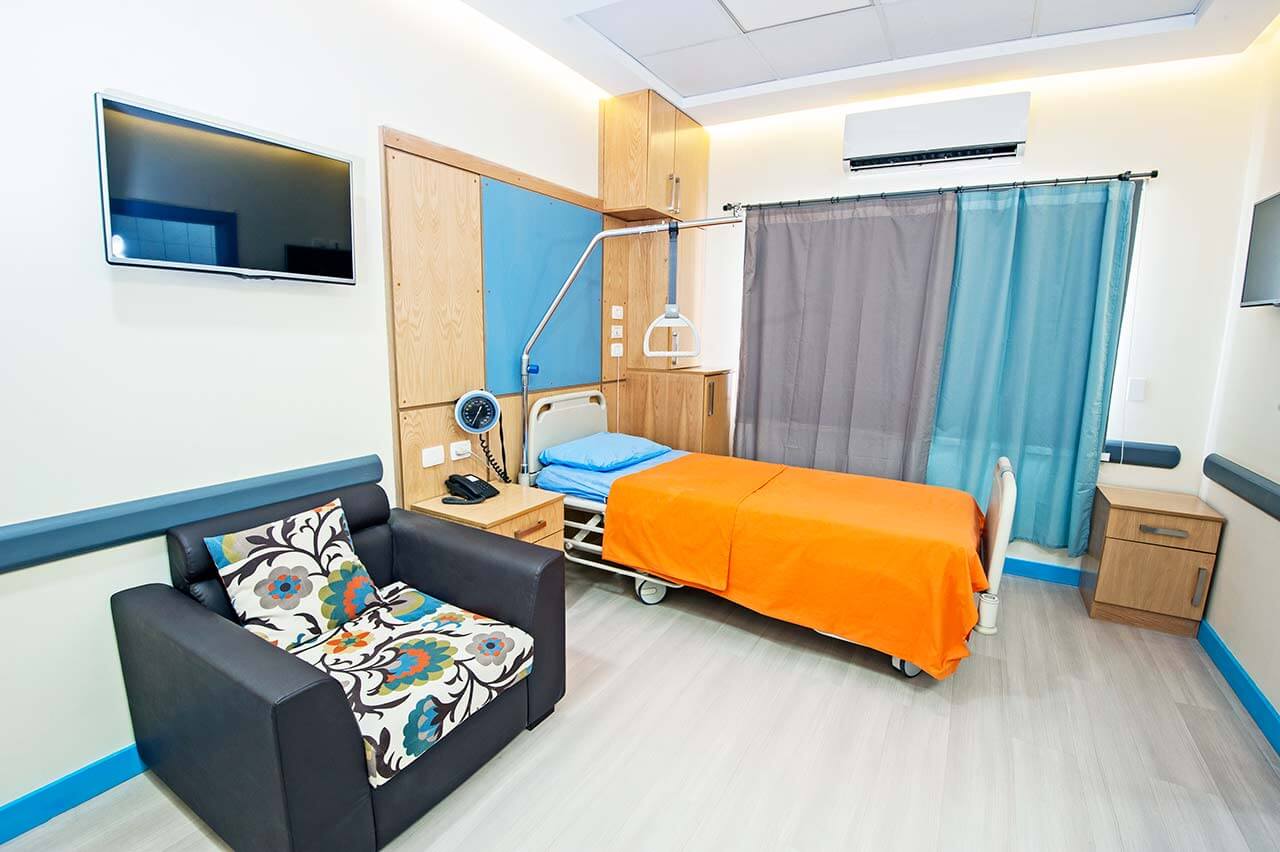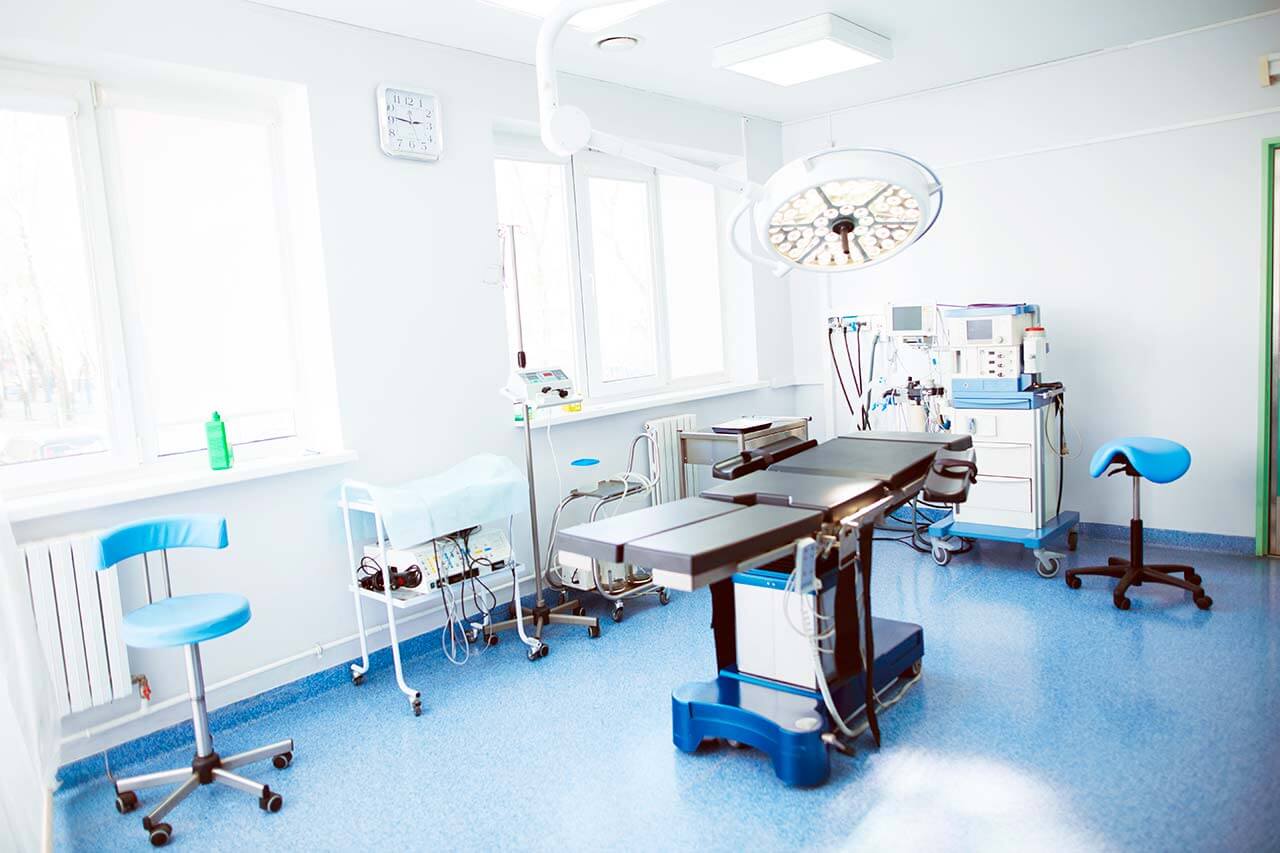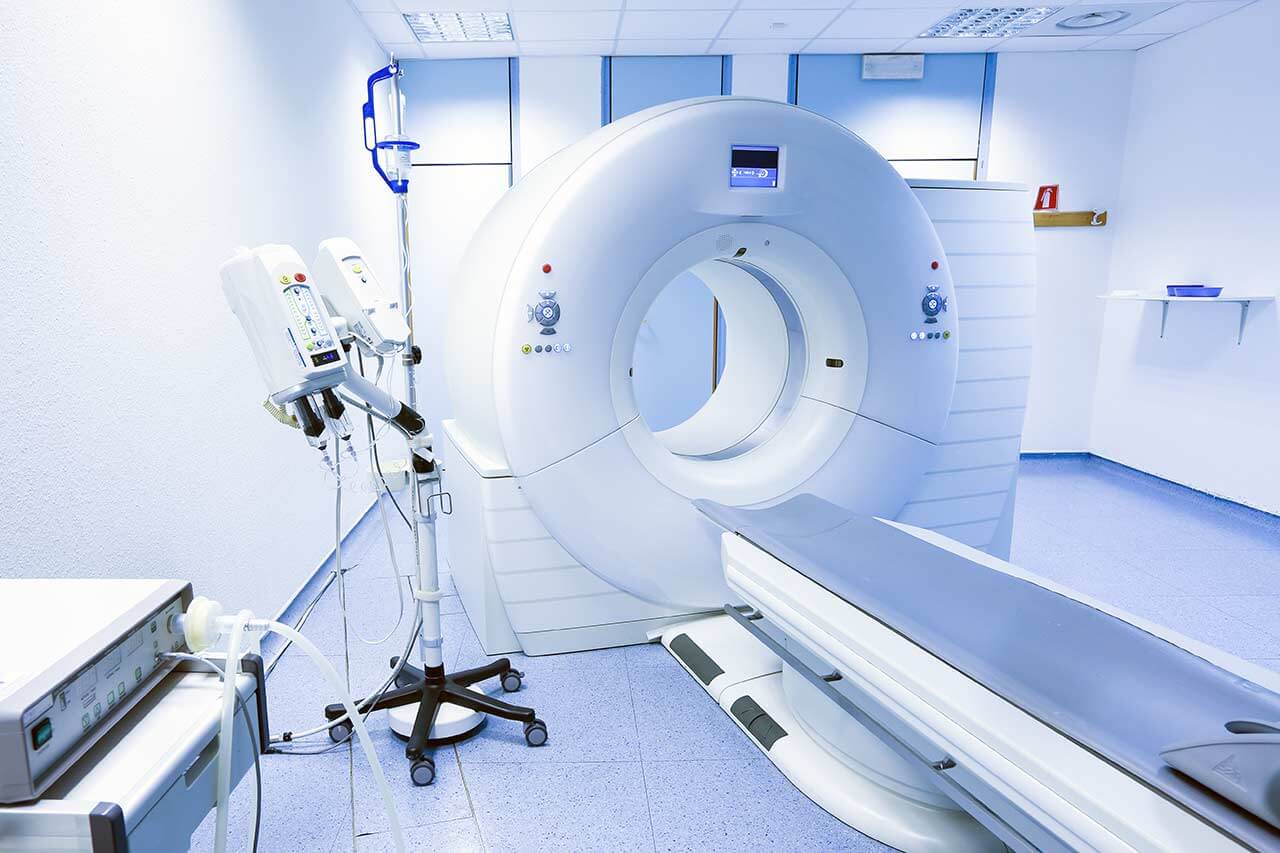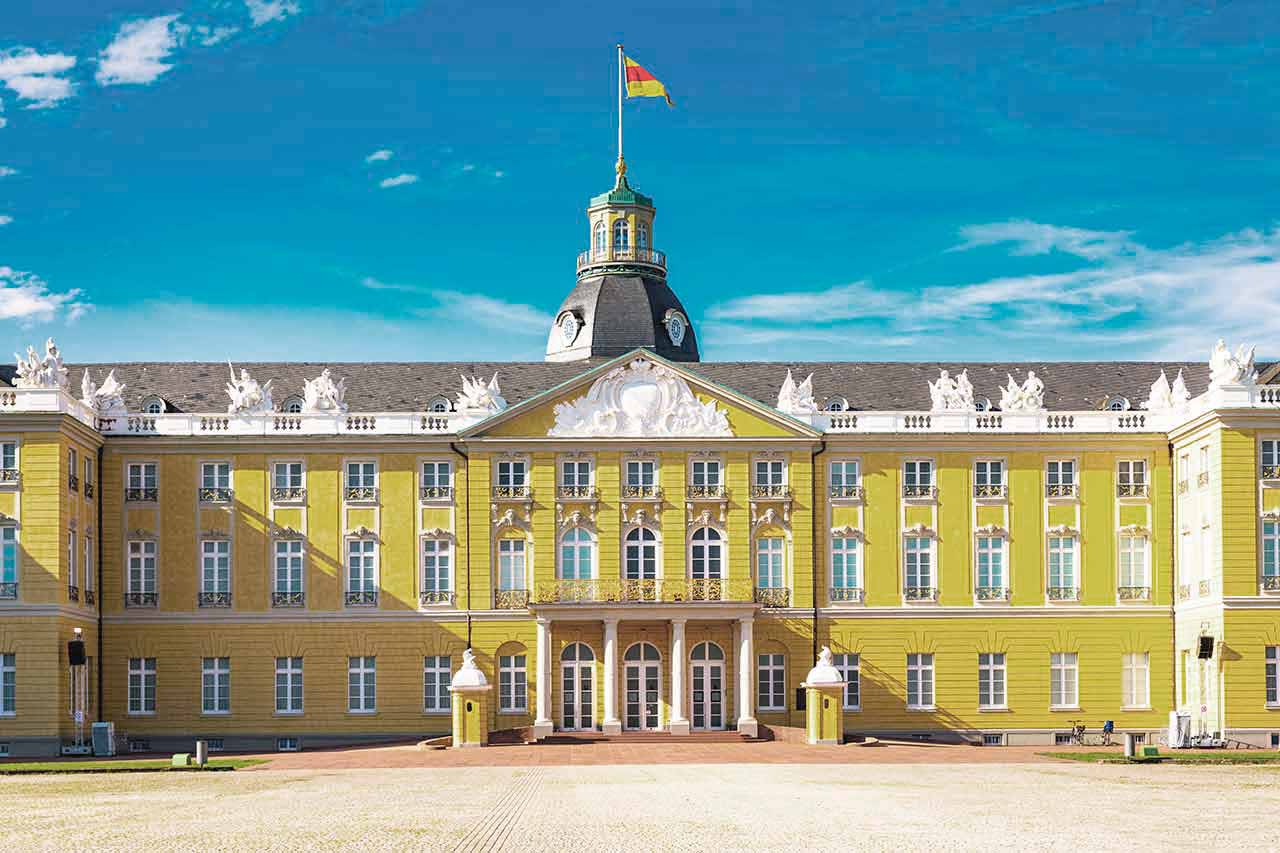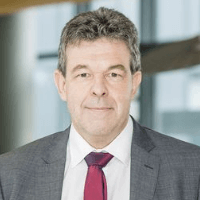
The program includes:
- Initial presentation in the clinic
- clinical history taking
- physical examination
- neurological and psychological status examination
- laboratory tests:
- complete blood count
- biochemical analysis of blood
- L-Dopa-Test
- brain EEG
- CT/MRI of head
- preoperative care
- pallidotomy (the destruction of internal globus pallidus)
- stay in intensive care unit for 1 day
- nursing services
- control examinations
- cost of essential medicines and materials
- nursing services
- full hospital accommodation
- explanation of future recommendations
Required documents
- Medical records
- MRI/CT scan (if available)
Service
You may also book:
 BookingHealth Price from:
BookingHealth Price from:
About the department
The Department of Adult and Pediatric Neurosurgery, Spinal Surgery at the Municipal Hospital Karlsruhe offers the full range of medical services in its specialization areas. The medical facility provides effective surgical treatment of diseases of the central and peripheral nervous systems. When performing interventions on the brain, spinal cord, their meninges and blood vessels, as well as on the peripheral nervous system, the department's neurosurgeons use state-of-the-art neuronavigation and stereotaxy devices, ultrasound and endoscopic equipment, intraoperative electrophysiological monitoring (EEG, EMG, visual evoked potentials, acoustic evoked potentials), devices for continuous intracranial pressure measurement and other technical options. The department's competent surgeons perform about 1,800 interventions of varying complexity annually. The department has 39 beds to accommodate its patients. The department's surgeons cooperate with neurologists, pediatric surgeons, neuroradiologists, oncologists, otolaryngologists and other doctors, thanks to which their patients receive comprehensive medical care. The department is headed by Prof. Dr. med. Dr. h.c. Uwe Spetzger.
The treatment of brain tumors is one of the department's priorities. Successful brain surgery requires high-tech equipment and the exceptional professionalism of surgeons. Since the department has all this, it achieves optimal treatment results. In the course of surgical interventions for brain tumors, cutting-edge navigation systems and microsurgical techniques are necessarily used. The operation is planned with the help of an MRI scan. Depending on a tumor location, ultrasound imaging and electrophysiological neuromonitoring may also be used. The goal of surgical treatment is not only the tumor resection, but also the preservation of vital functions, since damage to the nervous tissue can lead to paralysis, speech disorders, etc. The specialists in this medical field most often deal with treating meningiomas, gliomas, pituitary tumors (adenomas), acoustic neuromas and brain metastases.
The department often admits patients with cerebral aneurysms, arteriovenous malformations, cavernomas and angiomas. To treat aneurysms, the department's specialists perform clipping or endovascular coiling: access to the pathological focus is not through a surgical incision, but through a puncture of the inguinal artery. A catheter is inserted into the inguinal artery and directed to the aneurysm under X-ray guidance. Such treatment guarantees an effective result and maximum safety for the patient. Arteriovenous malformations, cavernomas and angiomas are also most often removed with endovascular techniques, and in especially complex cases, a hybrid intervention combining endovascular manipulations and classical surgical techniques is possible.
The department's neurosurgeons have long successful experience in the surgical treatment of spinal diseases, particularly degenerative lesions, tumors and injuries. In most cases, microsurgical techniques and minimally invasive procedures are used, which are highly accurate and efficient. The maximum surgical safety is ensured with the use of advanced surgical microscopes and navigation systems. Restoration of mobility after such operations occurs in the shortest possible time. The department also successfully performs X-ray guided facet joint infiltration, intrathecal pain management and neuromodulation for chronic back pain.
The department's range of surgical services includes:
- Neurosurgery
- Treatment of brain tumors
- Meningiomas
- Gliomas
- Acoustic neuromas
- Pituitary tumors
- Brain metastases
- Surgical resection using neuronavigation and electrophysiological monitoring
- Treatment of brain hemorrhages and vascular malformations
- Subarachnoid hemorrhages
- Endovascular interventions
- Cerebral aneurysms
- Endovascular procedures: clipping and coiling
- Arteriovenous malformations: cavernomas and angiomas
- Classic surgical interventions
- Endovascular interventions
- Hybrid operations
- Subarachnoid hemorrhages
- Treatment of peripheral nerve diseases
- Tumors of the peripheral nervous system
- Compression syndromes
- Nerve ending lesions
- Treatment of movement disorders caused by pathologies of the nervous system
- Deep brain stimulation
- Ablation procedures (rare)
- Treatment of chronic neurological pain syndromes
- Microvascular decompression according to the Jannetta procedure for trigeminal neuralgia, vestibular paroxysm and facial spasm
- Intrathecal pain management (implantation of special pumps with pain medications) for back pain
- Neuromodulation for back pain
- X-ray guided facet joint infiltration for back pain
- Treatment of pathologies of the nervous system in children (in cooperation with the Department of Pediatric Surgery)
- Hydrocephalus
- Spina bifida
- Craniosynostosis
- Skull fractures
- Brain hemorrhages
- Treatment of brain tumors
- Surgical treatment of spinal pathologies
- Treatment of degenerative spinal diseases
- Lumbar herniated discs
- Lumbar spinal stenosis and lumbar spinal instability (spondylolisthesis)
- Cervical spinal stenosis and cervical herniated discs
- Treatment of spinal tumors
- Meningiomas
- Intraspinal neuromas
- Intramedullary spinal cord tumors
- Spinal hemangioblastomas
- Spinal metastases
- Treatment of spinal injuries and fractures
- Treatment of degenerative spinal diseases
- Other diseases and surgical treatments
Curriculum vitae
Medical Education
- 1983 - 1988 Medical studies, Faculty of Medicine, University of Heidelberg, Germany.
- 1988 - 1989 Practical year in Neurology and Internal Medicine, University of Heidelberg, Germany, and in General Surgery, University of Zurich, Switzerland.
- 1987 - 1990 Foreign Medical Graduate Examination in Medical Science (ECFMG basic part and ECFMG clinical part).
- 1994 Doctoral thesis defense, Department of Gynecology, University of Heidelberg, Germany.
Professional Career
- 1990 - 1996 Resident Program, Department of Neurosurgery, Faculty of Medicine, RWTH Aachen University, Germany.
- 1996 Consultant at the Department of Neurosurgery, Faculty of Medicine, RWTH Aachen University, Germany.
- 1997 Member of the German Society of Neurosurgery.
- 1997 Member of the International Society for Neurosurgical Technology and Instrument Invention (ISNTII).
- 1997 Member of the European Spine Society (ESS).
- 1998 Member of the Congress of Neurological Surgeons (CNS).
- 1999 Grant of the Wilhelm Toennis Foundation of the German Society of Neurosurgery for Scientific Internship at University of Illinois at Chicago, Department of Neurosurgery.
- 1999 - 2002 Vice Chairman at the Department of Neurosurgery, University of Freiburg, Germany.
- 2000 Habilitation, Faculty of Medicine, RWTH Aachen University, Germany.
- 2001 International Membership of the Cerebrovascular Section of the AANS/CNS.
- 2001 CURAC Foundation Member, German Society of Computer and Robot-Assisted Surgery.
- 2002 Head and Professor of the Department of Adult and Pediatric Neurosurgery, Spinal Surgery at the Municipal Hospital Karlsruhe, Germany.
Awards, Honors and Memberships
- 2003 Faculty Member of the University of Karlsruhe, Institute of Computer Science and Engineering (CSE).
- 2004 Corresponding Member of the German Academy of Neurosurgery (Section IV: Science and Teaching).
- 2006 Member of the Society for Medical Innovation and Technology (SMIT).
- 2007 Member of the German Spine Society (DWG).
- 2007 Member of the Heinrich Hertz Society, University of Karlsruhe, Germany.
- 2008 Faculty Member and Dr. h. c. at the Tbilisi State Medical University, (TSMU) Tiflis, Georgia.
- 2008 Premium lifetime membership in Karlsruher Sport Club (KSC).
- 2008 Head and Consultant of the Department of Neurosurgery and Spinal Surgery, ARCUS Sportklinik, Pforzheim, Germany.
- 2008 Honorary Director and Scientific Cooperation Partner, First People’s Hospital of Changzhou, China.
- 2009 Member of the Center for Art and Media (ZKM).
- 2009 Member of the Association of Neuroesthetics.
- 2009 Member of the New European Surgical Academy (NESA)
- 2009 Member of the Research Center Karlsruhe, Karlsruhe Institute of Technology.
Photo of the doctor: (c) Städtische Klinikum Karlsruhe
About hospital
The Municipal Hospital Karlsruhe is a modern maximum care medical facility, which combines a long tradition and the advanced achievements of modern medicine. The hospital operates on the basis of the University of Freiburg, so scientific innovations in the field of diagnostics and treatment are continuously introduced into practice here. The hospital presents almost all areas of modern medicine, including many medical services for young patients.
A highly qualified and experienced team of more than 4,500 employees provides impeccable medical care. The medical facility has 1,571 beds for the hospitalization of its patients. The hospital admits more than 63,000 inpatients and about 186,000 outpatients annually. A large number of patients wishing to receive medical care in the hospital speak for themselves and are a confirmation of the exceptional service, as well as the effectiveness of the treatment provided.
The quality management system of the hospital's medical care is certified in accordance with the DIN EN ISO 9001 standards. Since 2016, the hospital has implemented a regular quality control in compliance with the strict standards of the Initiative Quality Medicine (IQM). In addition, almost all departments of the hospital have numerous certificates in their areas of specialization, including certificates from the German Cancer Society (DKG), the German Society for General and Visceral Surgery (DGAV), the German Cardiac Society (DGK), the German Diabetes Society (DDG), the German Society of Nephrology (DGN), the German Trauma Society (DGU), etc.
The main value of the hospital's staff is the health and satisfaction of their patients, so a respect and a humane attitude towards each patient remain priorities. The doctors and nursing staff support each patient in every possible way on their path to recovery. The specialists also strive to perform the most sparing, but at the same time the most effective and safe treatment.
Photo: (с) depositphotos
Accommodation in hospital
Patients rooms
The patients of the Municipal Hospital Karlsruhe live in cozy patient rooms with everything necessary for a comfortable stay. Standard patient room furnishing includes an automatically adjustable bed, a bedside table, a TV, and a telephone. The patient rooms have Wi-Fi. Each patient room also has an ensuite bathroom with a shower and a toilet.
The patient rooms in the pediatric departments are specially designed for children, so that young patients feel at home. Children can live in their patient room with one of their parents. There are also special playrooms designed for children.
Meals and Menus
The patients of the hospital are offered tasty and varied three meals a day: breakfast, lunch and dinner. The menu also features dietary meals. The kitchen staff will gladly accept all the individual wishes of patients.
The hospital also has a cozy cafe where one can have a tasty snack, drink tea, coffee and soft drinks.
Further details
Standard rooms include:
Religion
The hospital has two chapels that regularly host Protestant, Catholic, and Ecumenical worship services. A patient can watch the broadcast of the worship on TV channels in his own room, if desired.
Accompanying person
Your accompanying person may stay with you in your patient room or at the hotel of your choice during the inpatient program.
Hotel
You may stay at the hotel of your choice during the outpatient program. Our managers will support you for selecting the best option.
